


The Employment Revolution and the Haredim Who Are Being Left Behind
Written By: Dr. Asaf Malchi
With 50% of young Haredi men expected to enter the labor market actually those with poorer skills and abilities, there is an urgent need for an in-depth rethinking about Haredi education.

Religion and State in Israel: Charting a New Course for 5778
Written By: Dr. Shuki Friedman,
Is our country and society doomed to continually follow the same path of repeated crisis, or has the time finally come for us to plot a new course?

This Yom Kippur, Let's Turn Down the Volume
Written By: Dr. Shuki Friedman
A country that comes to a standstill for one whole day and doesn’t derive anything significant from it is missing the point.

Ultra-Orthodox in the IDF: A Ticking Time Bomb
Written By: Prof. Yedidia Z. Stern
To encourage enlistment, Israel should adopt a conscription model that is cognizant of the ultra-Orthodox fear of erosion of their identity and employs both positive and negative economic incentives.

The Nation State law
Written By: Yohanan Plesner , Prof. Mordechai Kremnitzer, Prof. Yedidia Z. Stern
If Israel was founded as the state of the Jewish people, why is a nation-state law so problematic, having already toppled one government?

Is the Chief Rabbinate's Monopoly on Kashrut Over?
Written By: Dr. Shuki Friedman
The implications of the Supreme Court's ruling go far beyond the Kashrut market.

Springboard to Employment: How Ultra-Orthodox Men Benefit from IDF Service
Written By: Dr. Asaf Malchi
Army service is an extremely powerful “employment engine” for most ultra-Orthodox men whose religious education does not provide them with the general background or professional training necessary for joining the work force outside the ultra-Orthodox sector.

Where Will the Ultra-Orthodox Community Live in 2040?
The State of Israel needs to come up with appropriate living solutions for the ultra-Orthodox, whose numbers are expected to increase significantly.

The Voice of Our Brothers' Blood
Written By: Prof. Yedidia Z. Stern
The whole world must be the arena of the war against antisemitism and the Jewish nation-state must serve as the supreme commander in this universal conflict.

Urgent need to outline clear criteria for returning captives
Following the resignation of Attorney Lior Lotan, the Prime Minister’s envoy for captives and missing persons and the Israeli Defense Minister's comment that "Israel will not ‘repeat the mistake’ of freeing terrorists" there is an urgent need to outline clear criteria for returning captives.

Out of Sight: How Do Israeli Parties Perform on Social Networks?
Yesh Atid, Zionist Camp and Meretz have the strongest online presence, while the Joint List and Yisrael Beiteinu lag behind.

Lessons from the Yisrael Beytenu Affair
Written By: Dr. Assaf Shapira
Regulation, transparency and enforcement capabilities are crucial steps for lobbying to work.
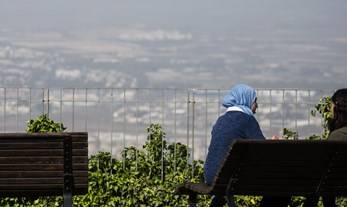
Time to Include Arabs among the Decision-Makers
Written By: Dr. Nasreen Haddad Haj-Yahya
The state and its Arab leadership, not only the political leadership, must work together to bring as many Arab citizens as possible into the decision-making echelons.
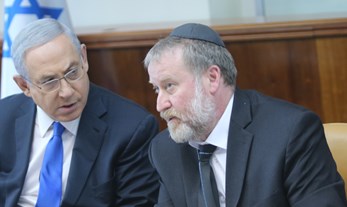
A Prime Minister Under Criminal Investigation
Written By: Prof. Ofer Kenig, Dr. Guy Lurie
A summary of where the law stands regarding alleged wrong doing by the premier, as well as timely suggestions for reform, are in order.
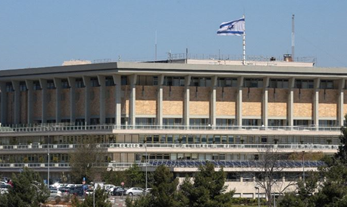
There is Still Hope for Knesset Reform
Written By: Yohanan Plesner
When legislators exhibit such disdain for the country’s legislative body, is it any wonder the average citizen does too?

How Israel’s Leadership Betrayed Democracy
Despite the verdict, the real story in the Azaria affair is the moral, not the legal, issue, and this debate is alive and well.
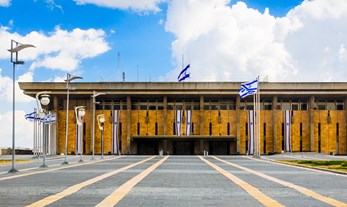
Improving the Way the Knesset Functions
Written By: Dr. Chen Friedberg
A set of reforms must be implemented so that Knesset members' supervisory ability over the government will be enhanced.

Increasing the Size of the Israeli Knesset
Written By: Prof. Ofer Kenig
The Knesset is one of the smallest parliaments in the world, in terms of legislators per capita. As a result, the effectiveness of the Israeli parliament is diminished, especially regarding the important task of overseeing the executive.

Active Labor Market Policy Must Become Priority
Written By: Prof. Yotam Margalit
For Israel's economy to grow, significant investment in building a strong and effective infrastructure for occupational training and reemployment is critical.

Survey: 56% of Jews Think Most Arab Citizens Support Temple Mount Attack
Monthly Peace Index also finds that 65% of Israelis do not trust Prime Minister Benjamin Netanyahu's handling of the crisis on Temple Mount.
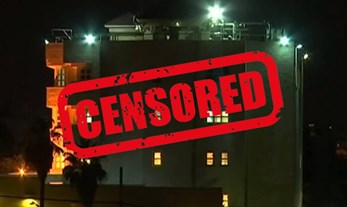
Events in Jordan Prove the Power of Israel's Censor Has Grown
Israel's Military Censor, an institution that has no parallel in any other democracy in the world, must cease to exist.
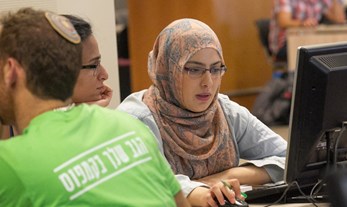
Opportunities Now: Arab Employment in the Galilee
Written By: Dr. Nasreen Haddad Haj-Yahya
The north presents real opportunities for Israel’s society and economy. Turns out that the solutions have been in plain sight all along.
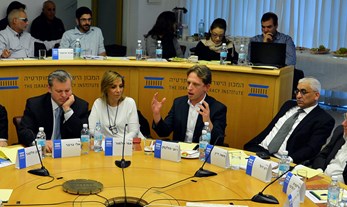
Civil Service Commissioner: For Country or Government?
Written By: Motty Shapira
The civil service commissioner holds an important public position, and should not be relegated to serving as a rubber stamp for the government.

Give Israel a Constitution
Written By: Dr. Arye Carmon
In an article originally published in The Jerusalem Post, IDI Former President and Founder Dr. Arye Carmon reflects on the significant progress toward the enactment of a full constitution for Israel.

Cyber-Terrorism
Written By: Schafferman Karin Tamar
Cyber-terrorism, terror committed via a computer, is a complex threat which countries all over the world are struggling to outsmart. In this article originally published in Hebrew in Parliament, the Israel Democracy Institute's online journal, Karin Tamar Schafferman explains that fighting cyber-terrorism is "battling an enemy without borders", a truly challenging phenomenon. She warns that the consequences of cyber-terrorism could in fact be more severe than acts of conventional terrorism.

What remains of the religious status quo?
Written By: Dr. Shuki Friedman
Instead of Judaism being what unites Jews in Israel with Jews around the world, our religion has become the main source of conflict.

To those Who are Making Decisions about the Future of the Jewish State:
Written By: Yohanan Plesner
In an op-ed first published by The Forward, IDI's president calls on Israeli leaders to empower Diaspora Jews in the crucial debate on identity and faith.

What is the State’s Obligation to Soldiers who have been Captured while Fulfilling their Duty?
Written By: Admiral (Res.) Amichay (Ami) Ayalon, Amichai (Ami) Ayalon
In an op-ed soon to be published by the Jerusalem Report, the former head of the Shin Bet security service argues that mutual responsibility is the cornerstone on which the resilience of Israeli society is founded, and is most strongly expressed in the commitment of the government of Israel to do everything possible to secure the release of its captured soldiers.

New IDI Survey: 46% of Religious Israelis Support a Change to the Religious Status Quo
A special IDI survey shows that 70% of secular Israelis believe that in recent years life in the public sphere has tended to favor the ultra-Orthodox and religious; over one-third of religious Israelis and 80% of people who define themselves as not religious but traditional either support the separation of religion from state or reducing religious influence on life in Israel.
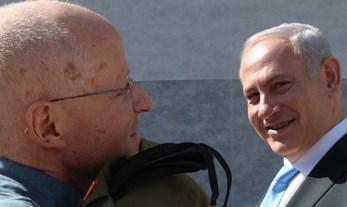
And What If He Was Your Son?
Written By: Dr. Idit Shafran Gittleman
In a poignant op-ed, published by the Jewish Journal, Dr. Idit Shafran Gittleman confronts the issue of the price a country should pay to bring home its captive soldiers, including those who have been declared dead.

